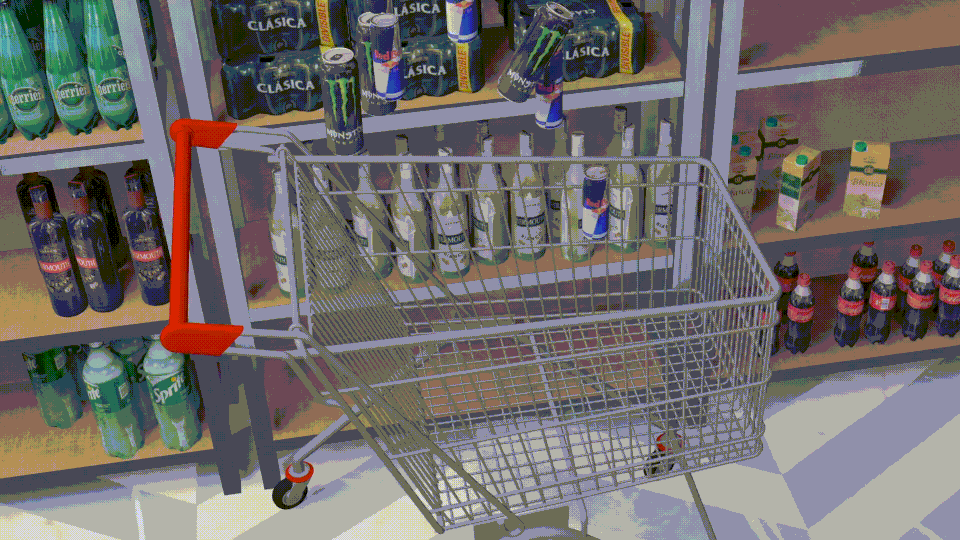Once only spoken of in hushed tones in dimly lit back rooms, the still-nascent field of synthetic data is beginning to deliver on its promises, with both businesses and investors taking note.
Edinburgh-based Neurolabs has raised €3 million in a seed funding round that will enable the company to continue to scale operations as well as expand its offering to include several consumer packaged goods use cases. Since 2019, the startup has raised a total of $4.9 million.
This announcement arrives just a few weeks since Madrid’s synthetic data startup ANYVERSE raked in €3 million in a Series A round led by Bullnet Capital and Inveready, while Vienna’s MOSTLY AI saw Molten Ventures lead a $25 million Series B round announced in early January. Clearly, there’s something bubbling just below the surface here.
But perhaps I’m getting ahead of myself. Let’s back up a second.
synthetic adjective syn·thet·ic | \ sin-ˈthe-tik \ : devised, arranged, or fabricated for special situations to imitate or replace usual realities.
But wait, isn’t the whole point of data to be cold, hard, indisputable facts? Precisely not something fabricated or imitated? Yes.
So what’s the deal with synthetic data?
To put things quite simply: time, money, and accuracy.
Not only is the process of collecting the massive amount of data needed to train an AI sometimes difficult to obtain, but it often has a hefty price tag attached to it, and can be “dirty”, ultimately leading to unintended biases.
Where synthetic data enters the picture is through the AI-based creation of data that accurately resembles something that exists in the real world and has its characteristics but does not depict them directly.
Through this process concerns about data privacy are all but eliminated, and data sets can be freely shaped and formed in order to fit the specific use case of the AI to be trained.
According to Vienna’s Mostly AI, they can, “create synthetic data sets which look just as real as a company’s original customer data and reflect behaviours and patterns with up to 99% accuracy.”
The power and accuracy of synthetic data is so great, that according to Gartner, the method will completely overtake real-life data within the next eight years.
And now back to our regularly scheduled programme
Now that we’ve made the case for synthetic data, where Neurolabs fits into the grand scheme of things is with a no-code or low-code offering that allows retailers to leverage the power of Computer Vision in any means of automation solutions, all at a fraction of today's cost of development and deployment.
However, it’s not quite as easy as it sounds.
CEO and founder Paul Pop outlines just one of the hurdles the company has overcome, “Unstructured visual data for AI processes in retail needs very precise and anticipating 3D-modeling of everyday physical objects like milk cartons and cereal boxes. For a machine to simply recognize an object on the shelf is not enough. To anticipate and reproduce real-life changes in packaging and design is the real feat for Synthetic Computer Vision championed by Neurolabs.”

Neurolabs is in the process of compiling the largest 3D repository in retail, consisting of some 100,000 (and counting) digital twins of physical products (consumer packaged goods), that will enable synthetic computer vision technologies to be used at every stage of the lifecycle of the consumer packaged goods, from manufacturing and distribution to in-store/e-commerce, and recycling.
Neurolabs’ €3 million seed round was led by Sofia’s LAUNCHub Ventures and saw participation from Techstart, 7% Ventures, and Lunar Ventures.
‘While the Teslas and Googles of this world can pour into their AI operations their unmatched financial and human resources to develop next-stage consumer products like self-driving cars, there are a plethora of non-tech industries that are ripe for the latest automation technologies but struggle with adoption,'' commented LAUNCHub Ventures’ Stan Sirakov. “With an end-to-end solution so easy to implement, we see it as a way to democratise Computer Vision.”



Would you like to write the first comment?
Login to post comments